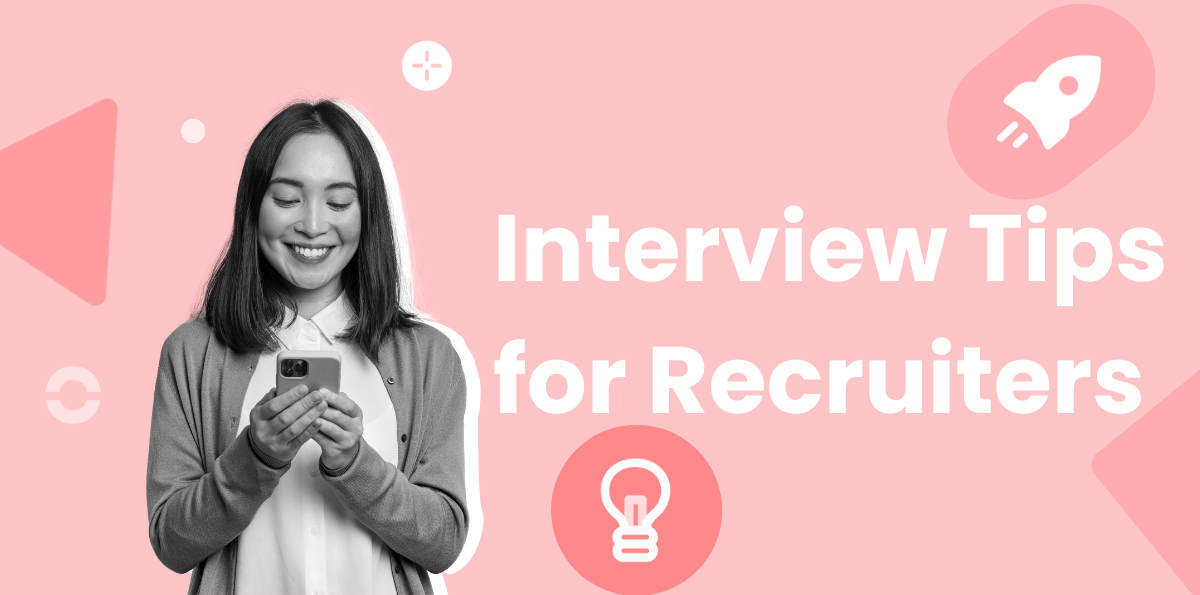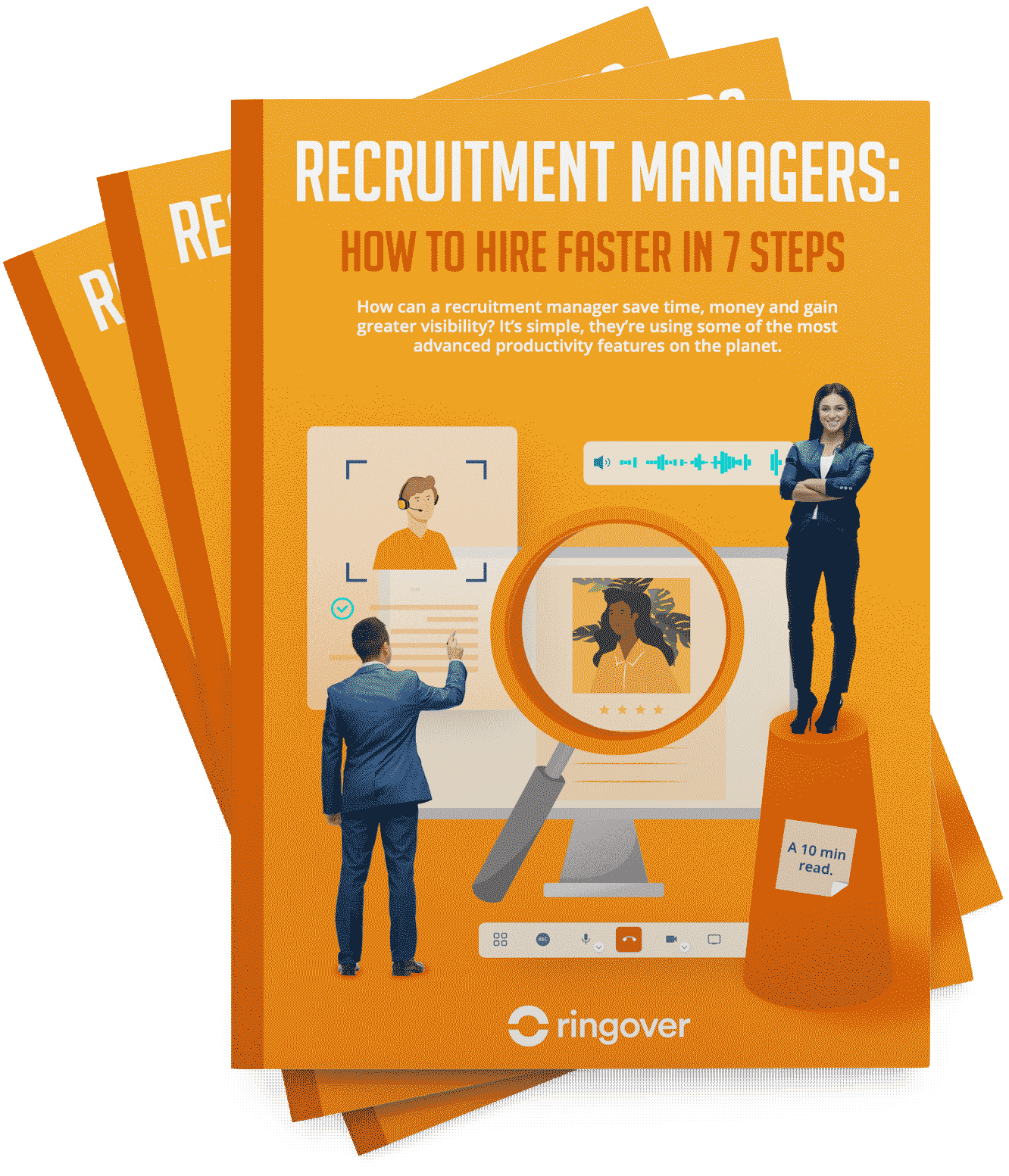As a recruiter, conducting successful job interviews is essential for finding the right candidates to fill positions within your organisation. A well-executed interview can provide valuable insights into a candidate's qualifications, personality, and fit for the role.
To make sure this key interaction yields the best results, we've compiled five positive actions recruiters should take during a job interview, five things they should avoid to ensure a great candidate experience, and tools that optimise your recruitment process.
Do's: Interview tips for recruiters
1. Prepare Thoroughly✅
Before the interview, familiarise yourself with the candidate's resume, cover letter, and any other relevant documents. Review the job description and consider the key skills and qualifications required for the role. Prepare a list of targeted questions that will help you assess the candidate's suitability for the position.
One way to optimise your preparation process is to have an integration between your ATS and your VoIP phone. This allows for automatic data syncing between the two software, so any interactions are automatically logged and easily accessible from one interface. Many integrations are available between the VoIP software Ringover and ATS, including popular options like Zoho Recruit, Bullhorn, Recruit CRM, Vincere, and more. Alternatively, if you're using a CRM, there are also integrations available with Salesforce, Hubspot, Zoho, and more.
2. Create a Welcoming Atmosphere✅
From the moment the candidate arrives, make them feel welcome and at ease. Offer a friendly greeting, introduce yourself and any other interviewers, and provide an overview of what to expect during the interview process. Creating a positive and welcoming atmosphere can help the candidate relax and perform at their best.
One of the best ways to do this is to get in touch with the candidate via their preferred channel. That way, they'll feel comfortable communicating with you in the way they prefer. While this may sound complicated, Ringover makes it easier than you could imagine.
That's because it provides for omnichannel communications, so you have options like social media messaging, voice calls, text messaging, email, and more available from the same software. Plus, there are useful features like CTI screen pop, tags, and call notes that provide key context to recruiters, so any recruiter can pick up a conversation with a candidate seamlessly.
3. Active Listening✅
During the interview, practise active listening by focusing your attention on the candidate's responses. Maintain eye contact, nod, and provide verbal cues to show that you're engaged and interested in what they're saying. Avoid interrupting or rushing the candidate, allowing them ample time to articulate their thoughts.
If you're looking to optimise your conversations, sometimes technology gives you the level up you need. For instance, Empower by Ringover is an AI-powered conversation intelligence software which uses semantic analysis to automatically transcribe and analyse interactions with candidates. This tool identifies key moments during conversations and allows you to improve your discussions and increase the likelihood of achieving the desired results. Don't overlook how much of a positive impact conversation intelligence can have on the candidate experience!
4. Ask Probing Questions✅

Use open-ended and probing questions to delve deeper into the candidate's skills, experiences, and motivations. Encourage them to provide specific examples or anecdotes that demonstrate their abilities and accomplishments. Tailor your questions to assess both technical competencies and cultural fit with the organisation.
5. Provide Feedback and Next Steps✅
At the end of the interview, thank the candidate for their time and participation. Offer constructive feedback on their performance, highlighting strengths and areas for improvement. Clearly communicate the next steps in the recruitment process, such as additional interviews or follow-up assessments, and provide an estimated timeline for decision-making.
Don'ts: What to avoid during interviews

1. Don't Rely Solely on First Impressions❌
While first impressions are important, avoid making snap judgments based solely on initial impressions or gut feelings. Take the time to thoroughly evaluate the candidate's qualifications, skills, and experiences before making a hiring decision.
2. Avoid Biassed or Discriminatory Questions❌
Steer clear of asking questions that could be perceived as biassed or discriminatory based on factors such as age, gender, race, religion, or disability. Focus on assessing the candidate's job-related qualifications and suitability for the role.
3. Don't Dominate the Conversation❌
Remember that the purpose of the interview is to learn more about the candidate, not to showcase your own knowledge or expertise. Avoid dominating the conversation or talking excessively, allowing the candidate ample opportunity to share their experiences and perspectives.
4. Avoid Vague or Leading Questions❌
Refrain from asking vague or leading questions that may steer the candidate towards a particular response. Instead, aim to ask clear, open-ended questions that allow for thoughtful and genuine responses.
5. Don't Forget to Follow Up❌
After the interview, don't neglect to follow up with the candidate in a timely manner. Whether it's to provide additional information, request references, or communicate a hiring decision, keeping the lines of communication open demonstrates professionalism and respect for the candidate's time and interest.
In Conclusion
By following these do's and don'ts for conducting job interviews, recruiters can enhance the effectiveness of their recruitment process and identify top talent to join their organisation. By creating a positive and welcoming atmosphere, practising active listening, asking probing questions, and providing constructive feedback, recruiters can ensure a fair and thorough evaluation of candidates.
Additionally, by avoiding common pitfalls such as relying solely on first impressions, asking biassed questions, or dominating the conversation, recruiters can uphold professionalism and integrity throughout the interview process.
Published on April 24, 2024.


